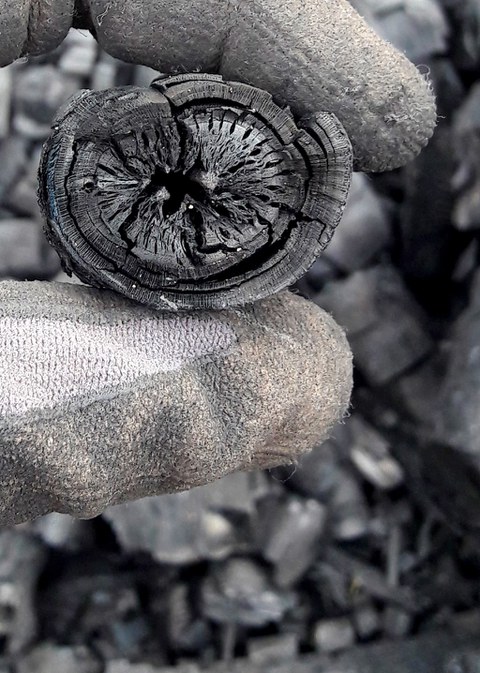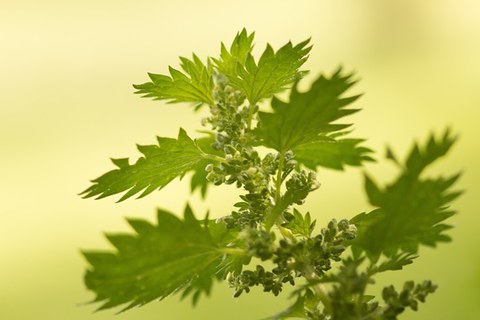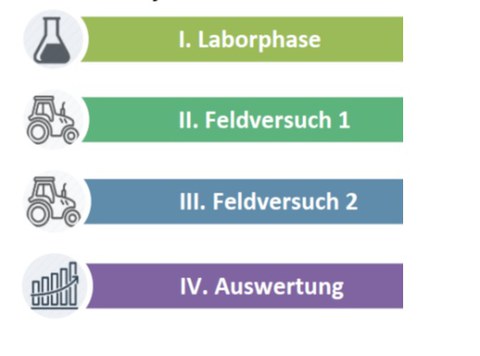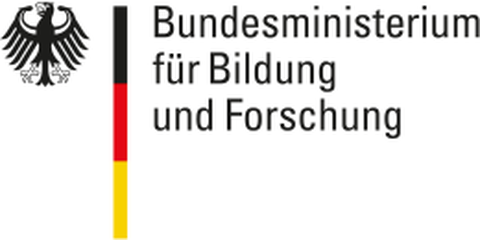Research project THEBIOCHARSTORY
New regional approaches to standardized loading, logistics, production, and distribution of plant charcoal for effective use in soil amendment and C sequestration
BMBF funding program "New Products for the Bioeconomy"
| Duration: | October 2022 - January 2025 (feasibility phase) |
| Contact: |
Prof. Dr. Christina Dornack |
Project description:
After successful completion of the exploratory phase [final report here], further technical and biochemical aspects for the production and application-oriented loading [1] of vegetable carbon will be investigated in the feasibility phase. Based on the research findings from the exploratory phase, nettle liquid manure from dried nettles will be used for loading. The aim is to develop a prototype for universally applicable (in humus-poor soils), loaded plant charcoal and to test it in two successive field trials at the project partner Agrargenossenschaft See eG in Upper Lusatia. Another project partner, Carbuna AG, distributes and loads plant charcoal and already has research experience in this field.
Plant charcoal [2] can be a key element to enter a climate-positive, more sustainable agriculture. How. Biological: plant charcoal can help build a humus layer if the soil is properly managed. Economically: organic production residues and biogenic waste experience a higher valorization and potential utilization through material instead of thermal recycling. By means of pyrolysis, the biomass and the concentrated carbon are materially stabilized and can serve as a negative emission measure in various applications (Pyrolytic Carbon Capture & Storage, PyCCS).
This project contributes to the National Bioeconomy Strategy by closing material cycles in agriculture and opening up new revenues for farms.
Project schedule:
In the period October 2022 - April 2023, further laboratory trials will be conducted at IAK to optimize the formulation of the loading prototype and to conduct scaling trials. In spring 2023, the first field trial will start in Lusatia with a cutur crop from the legume family. Subsequently, a cereal will be tested in the second field trial. The results regarding yield increase, plant health and soil improvement will be evaluated and published in project reports. Scientific publications are also planned.
Here we publish from time to time what keeps us busy:
https://www.instagram.com/thebiocharstory/
[1] Loading (also inoculation) of plant carbon: is the enrichment with nutrients and microbiology, until saturation, so that adsorbed nutrients can be released to the environment; also called "inoculation".
[2] Definition of vegetable carbon: a dry, tasteless, activated carbon-like material with about 95% carbon content, produced by e.g. pyrolysis from biogenic materials, highly porous with 300 m2 surface area per gram, exhibits high water and nutrient adsorption capacity, various uses.
[3] European Biochar Industry Consortium (2020). European Biochar Market Report 2020, February 2021- General Public. Available at https://www.biochar-industry.com/market-overview/
funded by:




